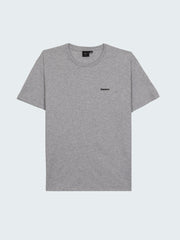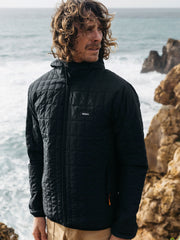It was the accumulation of experiences, continuously encountering the ghost gear problem – from both a working perspective and through personal experiences exploring the Cornish coastline and further afield – that led to Waterhaul. Every shoreline shows the evidence of this problem. My background is as a marine biologist and, being underwater, I’d seen the devastating impact ghost fishing gear can have first-hand. This was in the back of my mind every time I encountered those bright turquoise strands of net in the sand.
The roots of the Waterhaul idea were formed whilst working for Surfers Against Sewage at Wheal Kitty workshops, right next door to Finisterre. Being involved with the incredible mass-mobilisations of activists tackling plastic across the UK coastline, and finding the vast majority of beach clean plastic to be ghost gear, really pushed me to look for an answer. Flipping the problem on its head, I realised that the properties which made ghost gear such a problem – its abundance, strength, and likelihood to cause harm – present opportunities and make it a priority target to remove from the ocean.
This started an obsession with the problem. After a long period of design trials, mistakes, material failures and a massive learning curve, the first 100% recycled fishing gear prototype came out of the mould in November 2018. This was a huge moment. I finally had proof that this idea was possible, and it gave me huge motivation to go all in on this project. Soon after, my colleague from SAS, Gavin, took a leap and together we threw ourselves into building Waterhaul into the brand it is today.

















































































